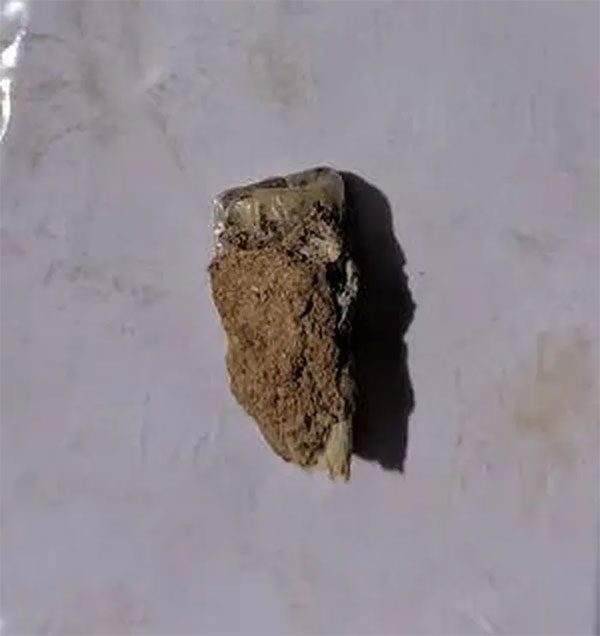The tooth is estimated to be 1.8 million years old. After its discovery, the graduate student handed it over to a team of archaeologists from Georgia.

The 1.8 million-year-old tooth found in Georgia indicates the presence of early humans outside of Africa. (Photo: Giorgi Kopaliani).
According to USA Today, the tooth was discovered by a graduate student at the Orozmani excavation site, located in the Caucasus region between the Black Sea and the Caspian Sea. Dated between 1.77 and 1.84 million years old, the tooth represents the earliest signs of humanity outside Africa.
“After transporting it to the National Museum of Georgia, we contacted a paleontologist who confirmed that it is a human tooth,” said Giorgi Kopaliani, an archaeologist at the National Museum of Georgia.
Kopaliani and his team began excavating at Orozmani in 2019. By early 2020, the team had to pause due to the pandemic. Last year, work resumed. Kopaliani stated that at this site, the research team discovered ancient stone tools and fossils from extinct species such as saber-toothed cats and Etruscan wolves.
At the Dmanisi excavation site, located 15 miles away, researchers also found human artifacts, including a skull estimated to be around 1.8 million years old. According to Kopaliani, the tooth and the skull are among the oldest evidence of early humans outside Africa.
While the remains found in Georgia are considered the oldest discovered outside Africa, researchers in China have uncovered stone tools dated to 2.1 million years old, which may indicate an even earlier presence of humans there.


















































